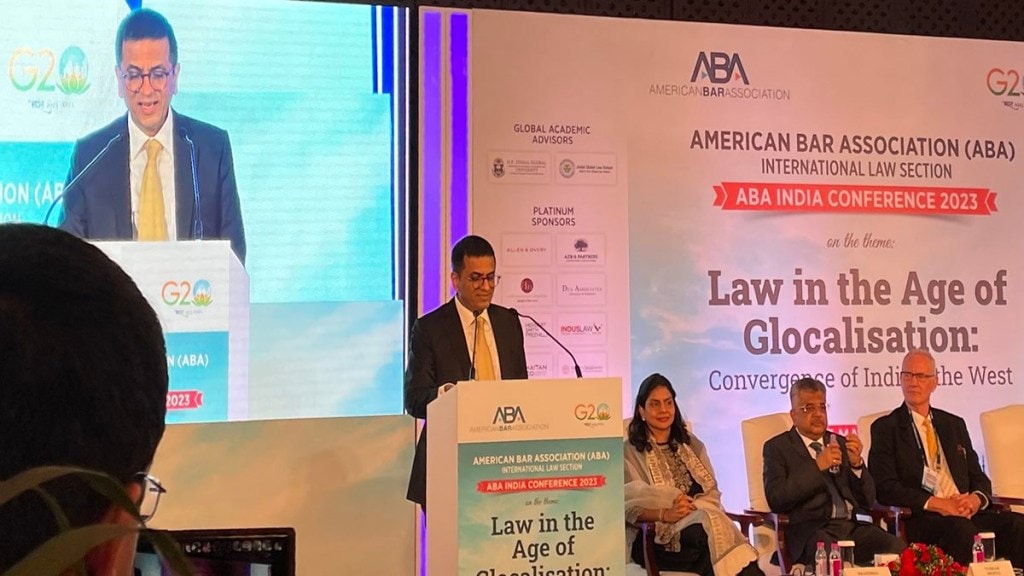Chief Justice of India DY Chandrachud on Friday said that people today are “short of patience and tolerance”. The CJI was referring to the menace of trolling while addressing the inaugural session of the American Bar Association (India) Conference 2023 on the topic of “Law in the age of Glocalisation: Convergence of India and West” in Delhi.
“When the Constitution was drafted, our Constitution makers possibly had no ideas on the lines in which humanity would have evolved. We didn’t possess notions of privacy, there was no internet, we didn’t live in a world which was controlled by algorithms, and we certainly didn’t have social media. For every little thing that we do – and believe me, as judges we are no exception to this – so in everything that you do, you face the threat of being trolled by someone who doesn’t share your point of view,” the CJI said.
“We live today in an age where people are short on their patience, they are short on their tolerance because we are not willing to accept perspectives which are different from our own,” he added.
“Truth has become the victim in an age of false news. With the spread of social media, something which is said as a seed germinates into virtually a whole theory which can never be tested on the anvil of rationale. But the grave danger that our society face is the danger of not being able to combat what we have now set forth, a change which now humanity has brought in terms of the advent of technology, but which is now perhaps going out of our control,” the CJI continued.
The CJI also said that the legal profession is confronted by several vital issues, the pressing issue among them being reforms in the legal profession itself.
“In so many ways, our profession is still patriarchal, feudal, built upon kinships and relationships of community, not to speak of closely monitored clubs, clubs of friendships, of associations,” the top judge said.
“I am often asked about why we can’t have more women judges in the Supreme Court than we have, why can’t we have more high court judges from among the women we have. And my answer is not simple, the answer is a little complex. And I hope it has a gem of truth,” the CJI went on.
“The seeds of our institutions today in terms of inclusion, and diversity reflect the state of the profession, say two decades ago. Because the judges who come to the high court today, in 2023, the judges who come to the Supreme Court in 2023, reflect the state of the bar at the beginning of the millennium,” he said.
The CJI added, “Now, unless there is a level playing field for women to enter the legal profession and to thrive in the legal profession between 2000 and 2023, there is no magic wand by which we will have more Supreme Court judges. So, we have to create a framework for a more diverse and inclusive profession today if we truly have to create a future where our profession will be more inclusive and diverse.”
CJI Chandrachud, however, said that technology has come as a boon for the legal profession.
Speaking of the initiatives taken by the top court to digitalise, so that “no one is left behind in the advent of technology”, he said, “We have launched a very ambitious scheme for digitising records across India in all our courts. We have already started live-streaming court proceedings. Our Constitution Bench hearing of the Supreme Court bench are live-streamed.”
The apex court judge added, “The benefit of live-streaming is to reach out to citizens. On the flip side, citizens can realise how boring the processes of the court can be. But in telling them how boring sometimes our work can be, we are sending out a message for our citizens that in the smallest cases that we decide, of somebody’s pension, job or disability compensation, we take every little case seriously.”

